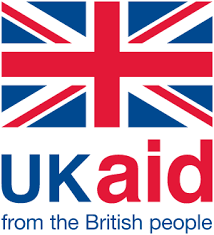Location
The Foreign, Commonwealth and Development Office (FCDO) pursuseds national interests and project the UK as a force for good in the world. We promote the interests of British citizens, safeguard the UK’s security, defend our values, reduce poverty and tackle global challenges with our international partners.
Members:
Resources
Displaying 201 - 205 of 228Land Governance for Economic Development
General
DFID will pursue actions globally to improve land rights protection to: help ensure women and men enjoy legally recognised, secure property and tenure rights. To Improve information and knowledgeto facilitate the provision of clear, transparent land related information and knowledge, enabling rights to be identified, understood and protected. To improve private sector investment through the development and rollout of a standardized investment risk assessment methodology and implementation of best practice in land governance.
Responsible and Innovative Land Administration Project in Etiopia, second phase (REILA II)
General
The project is the second phase of REILA (Responsible and Innovative Land Administration) that supports the development of land administration in Ethiopia. Ethiopia is one of the least developed countries (LDCs) according to the OECD's classification. All the land in Ethiopia is owned by the government, but the farmers have traditional, extensive user rights to their lands. Official registration of such lands increases further the tenure security. Increased land tenure security encourages farmers to use their lands in a sustainable way and to make investments to raise the productivity of the lands. Official registration also reduces conflicts over land. The project started in August in 2017, in alignment with the Ethiopia?s fiscal year. The long term impact of the project is to achieve improved livelihood and economic well-being of the rural population through promotion of sustainable land management practices. The outcome is to have improved and appropriate land administration system for Ethiopia and improved land tenure security for rural land users. Ministry of Agriculture manages the implementation of the project in Ethiopia. Finland's support to the intervention is 7.8 MEUR with a total budget of 8.51 MEUR. Additional funding for 2023 is 1 MEUR, thus Finland's total funding is 8.8 MEUR.
Greener Tanzania through climate resilient livelihoods and land use management
General
The project supports three organizations in Arusha region in Tanzania in their process to lift their members? climate resilience and green economy aiming at giving them a more prominent role in climate action. This contributes to climate justice since this focus group's need to prepare for climate change has been negleted before. The organizations will receive support to strengthen their capacity to manage climate planning, its implementation and finally advocate for climate funding, which will enable a larger outreach. In the project area, the population is predominantly from indigenous tribes (Maasai) and thus, it strengthens the position of vulnerable people. The project activities will focus on two outcome areas: i) strengthening the organizations and the services their provide for their members for climate resilience inclusively and ii) strengthening their members' livelihoods in green transition. Climate change impacts already smallholders and their livelihoods. The project facilitates the organizations policy advocacy for climate action based on fair, transparent and inclusive decision making. The project strengthens organizations' capacity according to their members? needs for climate resilience. Activities cover competence building and climate priority mapping which create a foundation for green livelihoods. Awareness raising activities target both the community level but also larger public. Land rights for communities are critical and thus rights-based activities focus on clarifying lands governed through customary right of occupancy. A special attention will be given to women through Women? Rights and Leadership Forums. Some basic equipment required for water management and energy efficiency are provided for the poor households to reduce time needed for water fetching and reduce the need for fuel. Disabled person have a separate budget for actions they consider priorities but activities with disabled start with awareness raising on their rights and possibilities. The project will be implemented in a coordinated manner with Trias-Tanzania, and is part of FFD's climate action.


